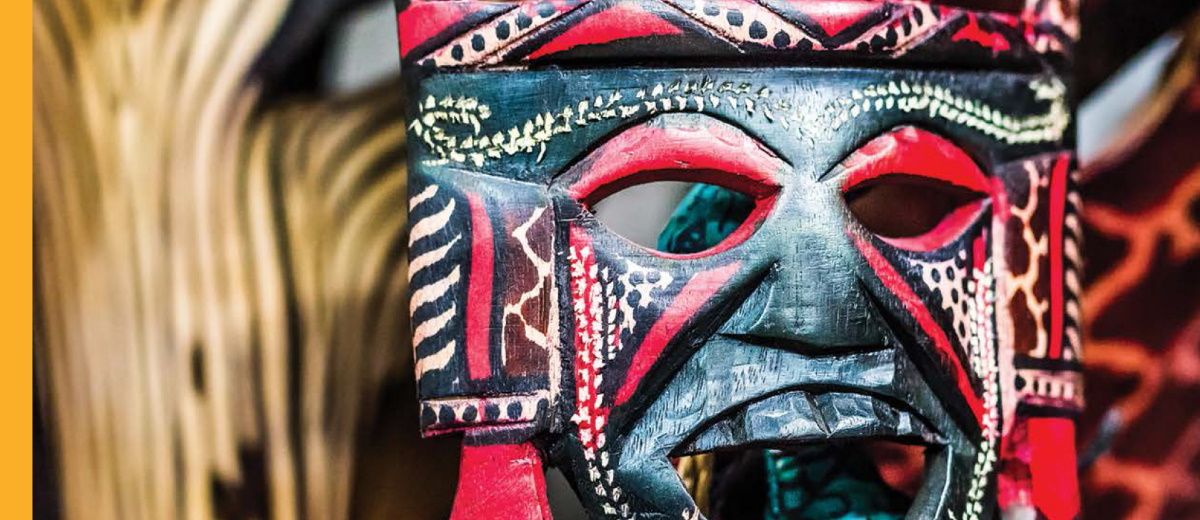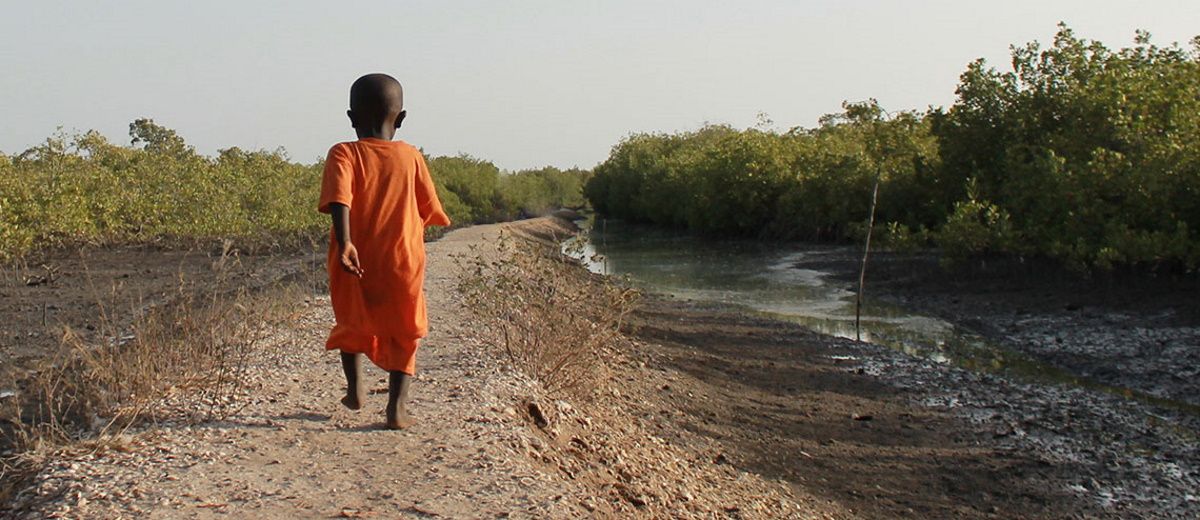Doors and Difficulties
Why should you get familiar with Africa? As a child of God, you exist to glorify God, seek and save the lost, pray for the neediest peoples, and responsibly funnel the resources God has entrusted to you toward the places of greatest need. Working intelligently and strategically requires knowing what needs to be done and then doing it. If Jesus were a pastor today, where would He send missionaries? How about where missionaries and the church aren’t? When you picture in your mind a “good Christian,” that concept should include a map, news of current events, and online research sources which identify existing peoples who have no Bible and no church; but that’s when the work really just begins.
The Apostle Paul confessed that his ministry efforts in Ephesus were equally ridden with opportunities and obstacles. “For a great door and effectual is opened unto me, and there are many adversaries” (1 Corinthians 16:9). While Paul’s experience is indicative of the worldwide work of God, it is especially so today among the fifty-plus countries and one billion inhabitants of the second largest continent in the world. What obstacles await the swift messengers (Isaiah 18:2) to the people of Africa?
The African man, by nature, is acutely in tune with the spiritual world. Two hundred years ago, the religion of Africa was mostly animism (simplistically understood as a belief in spirits). As missionaries facilitated the education of Africa, the religions of Christianity and Islam became viable options for Africans who wished to turn from animism. While nearly half of Africa is comprised of Christians, the growing number of Muslim adherents testifies to Islam’s ambition to claim the other half. The seventh edition of Operation World (2010: 40) estimates that 182 million Muslims occupy the region north of the Sahara while even more, 246 million, reside in sub- Saharan Africa. Since both Islam and Christianity in Africa today have residual elements of animism as a result of syncretism (e.g., ancestor worship), missionaries must understand the fear-based worldview of the African mind and go equipped with strategies like Chronological Bible Teaching which is purposefully designed to confront and remove these layers of lies through truth teaching.
There are 2,110 languages in Africa (Mandryk 2010: 30), making up almost one-third of the world’s 6,900 languages. According to Wycliffe Bible Translator (WBT) statistical estimates, 805 of these languages have no portion of Scripture (Last Languages Campaign) and over five hundred of these are located in Central Africa and Nigeria (Wycliffe Statistics). Nigeria alone contains five hundred and fourteen living languages (Ethnologue). Current progress is remarkable considering that by 1870, fewer than twenty African languages had been reduced to writing and by 1975, linguists believed there to be no more than 860 African languages (Kane 1982: 166). Not all African languages are primitive; many are indeed complex, demonstrating the demand for a sober approach in preparing for the linguistic challenge. In Central Africa, a language was discovered containing nouns in twelve genders and verbs with thirty-two tenses (Kane 1982: 166). To put this in perspective, English has only nine basic verb tenses. In South Africa, the Zulu language has approximately 23 kinds of nouns and a complicated verb system. Other linguistic obstacles in African languages consist of the knowledge and use of indigenous idiomatic expressions and the need to resort to description when one-word equivalents do not exist in the local vocabulary. In Kasem, a northern Ghanaian language, if one wanted to say “he is brave,” one must use an idiomatic expression which literally means, “his abdomen is hard.” Also, in Kasem of Ghana, there is no single word for “inheritance.” The way to express “inheritance” would be to describe what inheritance means, “the things our father left us when he died” (Beekman & Callow 1974: 163, 58).
Like many countries in the Two-thirds World, corrupt governments on the African continent are very often the cause of poverty, weak infrastructure, and a country’s inability to share its wealth with its own people. Leadership in these governments suppresses their peoples so they cannot function capitalistically. The people in these countries are denied the freedoms to create, to produce, and to trade. The poverty of Russia, India, China, Somalia, and Brazil is the result of cultures and governments that simply do not let people act capitalistically (Lingle 2005). While corrupt governments lead in the exploitation of its citizens, well-intentioned aid efforts may also be harmful. When missionaries facilitate the import of foreign aid items, which make up a legitimate portion of the local economy, they unwittingly contribute to the crippling of the local economy by effectively eliminating the need of the product already being provided by indigenous suppliers. In such situations, missionaries should listen and learn, lest their helping results in harm. Until there is a change in the source of the damage, missionaries will continue to share in the depravations of the people (Proverbs 29:2).
Christians today are the most persecuted group in the world.
Disease is at home in Africa. During the Great Century of missionary advance (1800’s), missionaries to Africa packed their belongings in their own coffins because they did not expect to live more than five years due to the climate and illnesses in Africa. While the threat from some African diseases has abated, Malaria, HIV/AIDS, and Sleeping Sickness are thriving and defying both Africans and expatriates alike. In the last two decades, three African nations have been involved in genocide: Rwanda, Northern Uganda, and the Sudan. Unthinkable atrocities have been committed in these campaigns, leaving horrific scars on the land and its inhabitants. During my summer in Israel (2009), I met a Sudanese man who was awaiting deportation back to Sudan. He had narrowly escaped from the Sudan with his wife and children after witnessing the execution of his own parents in the genocide in Sudan. The man was a believer of notable faith in Christ. As he re-told some of the horrible events which he had witnessed, I was acutely aware (but thankful) of how little I understood the severity of his tragic experiences. Workers to these and similar regions will need divine grace, wisdom, and patience in ministering among survivors.
“Christians today are the most persecuted group in the world. Persecution is on the rise because of Communism, the expansion of Islamic and Hindu extremism, and because of the sparsity of freedom-honoring governments around the world” (Ethics and Religious Liberty Commission). By some strange oversight, many believers in America are blind to the reality of the persecution accompanying identification with Christ (e.g., Matthew 24:9; Philippians 1:29; 2 Corinthians 1:5-11; 4:7-18; 11:23-30; 12:5, 10; and 1 Thessalonians 3:3-4). Africa is home to some of the most violent persecution of Christians in the world. According to Smyrna Ministries International, no place on the planet is more lawless and anti-Christian than Somalia, which contains a Muslim population of 99.95% (Status of the Persecuted Church in Islamic Contexts).
Al-Shabaab, a well-organized Muslim terrorist group in control of much of Somalia, has sworn to kill all Christians and bring Somalia under Sharia law. Based on the teachings of the Koran and the sayings of Muhammad, draconian brutalities—death by stoning for adultery, execution of converts from Islam to Christ, and chopping off hands and feet for stealing—are commonplace. A Christian man in Mogadishu was accused of trying to convert a Muslim boy and executed. Another believer refused to betray his teacher in the faith, and his young sons were beheaded. An evangelist bringing Bibles into the country was discovered and shot. Other Christians and converts have lost their families, jobs, and homes. Christians are forced to hide their faith since even owning a Bible is punishable by death. Yet, despite all this, believers still gather, and there is a great desire for the gospel.
Those of us from the West who minister among Muslims must realize that when we invite Muslims to identify with Christ, we simultaneously invite them to a persecution that we ourselves have never experienced – the threat of death for apostasy (turning from Islam). It is a sobering consequence for those of us who have paid relatively little to follow Christ. We should expect that witnessing among Muslims, as is the case in many countries in Africa, will very likely be met with violence and even martyrdom.
Admittedly, the obstacles on the African continent are enormous; but where there are obstacles, God has provided opportunities. The most significant opportunity in Africa is the presence of Unreached People Groups (UPG’s). These are distinct people, having their own language, who do not have a church capable of evangelizing their own people without outside assistance (Mandryk 2010: 962). Operation World identifies eleven countries in Africa containing the highest number of UPG’s.
| Country | UPG's | Rank |
| Sudan | 138 | 7th |
| Chad | 72 | 12th |
| Nigeria | 67 | 14th |
| Mali | 37 | 24th |
| Algeria | 35 | 26th |
| Kenya | 35 | 27th |
| Tanzania | 33 | 29th |
| Burkina Faso | 28 | 34th |
| Libya | 28 | 35th |
| Niger | 28 | 36th |
| Senegal | 27 | 38th |
The UPG’s of Africa clearly represent strategic opportunities for missionaries and churches who are convinced that God would send His workers to the most neglected and needy fields.
The demographics and difficulties of Africa today should both overwhelm you and direct you. Recognizing that there’s no way you can get a job done for God in a place like Africa should motivate you to look to God as your greatest Resource (2 Corinthians 1:8-9). God delights in involving Himself in impossible situations because they allow Him to show Himself strong and reveal His glory. It’s called the glory of the impossible. The knowledge of eleven African countries with UPG’s should compel churches to make these people priority targets on their missionary sending lineups. Don’t be satisfied to say, “We support missionaries in Africa.” Seek to say, “Our missionaries to Africa are working among the unreached people.”
Beekman, John & John Callow. 1974. Translating the Word of God. Grand Rapids: Zondervan Publishing House.; The Ethics and Religious Liberty Commission. Persecution. Available from http:// erlc.com/issues/quick-facts/persecution/; accessed 12 April 2011.; Kane, J. Herbert. 1982. A Concise History of the Christian World Mission. Grand Rapids: Baker Book House.; Lewis, M. Paul, ed. 2009. Ethnologue: Languages of the World, Sixteenth edition. Dallas: SIL International. Available from http://www.ethnologue.com/show_country.asp?name=nigeria; accessed 10 April 2011.; Lingle, Christopher. 2005 September 21. The Politics of population control. Available from http:// www.ideasinactiontv.com/tcs_daily/2005/09/the-politics-of-population-control.html; accessed 31 July 2010.); Mandryk, Jason. 2010. Operation World: The Definitive Prayer Guide to Every Nation, 7th edition. Colorado Springs: Biblica Publishing. ; Smyrna Ministries International. Status of the Persecuted Church in Islamic Contexts. Available from http://www.smyrnaministries.org/scic; accessed 11 April 2011.; Smyrna Ministries International. Persecution of Christians in Africa. Available from http://www.smyrnaministries.org/africa; accessed 11 April 2011.; Wycliffe Bible Translators. Last Languages Campaign. Available from http://www.lastlanguagescampaign.org/LLC/ Projects/Africa.aspx; accessed 7 April 2011.; Wycliffe Bible Translators. Available from http:// www.wycliffe.org/About/Statistics/GreatestNeed.aspx; accessed 8 April 2011.






